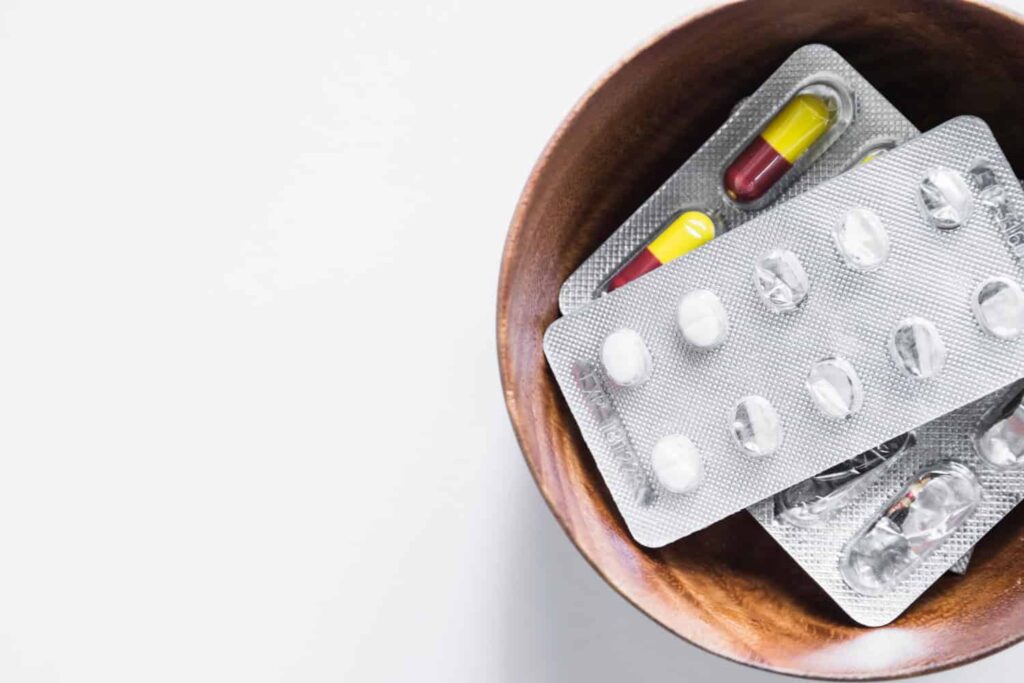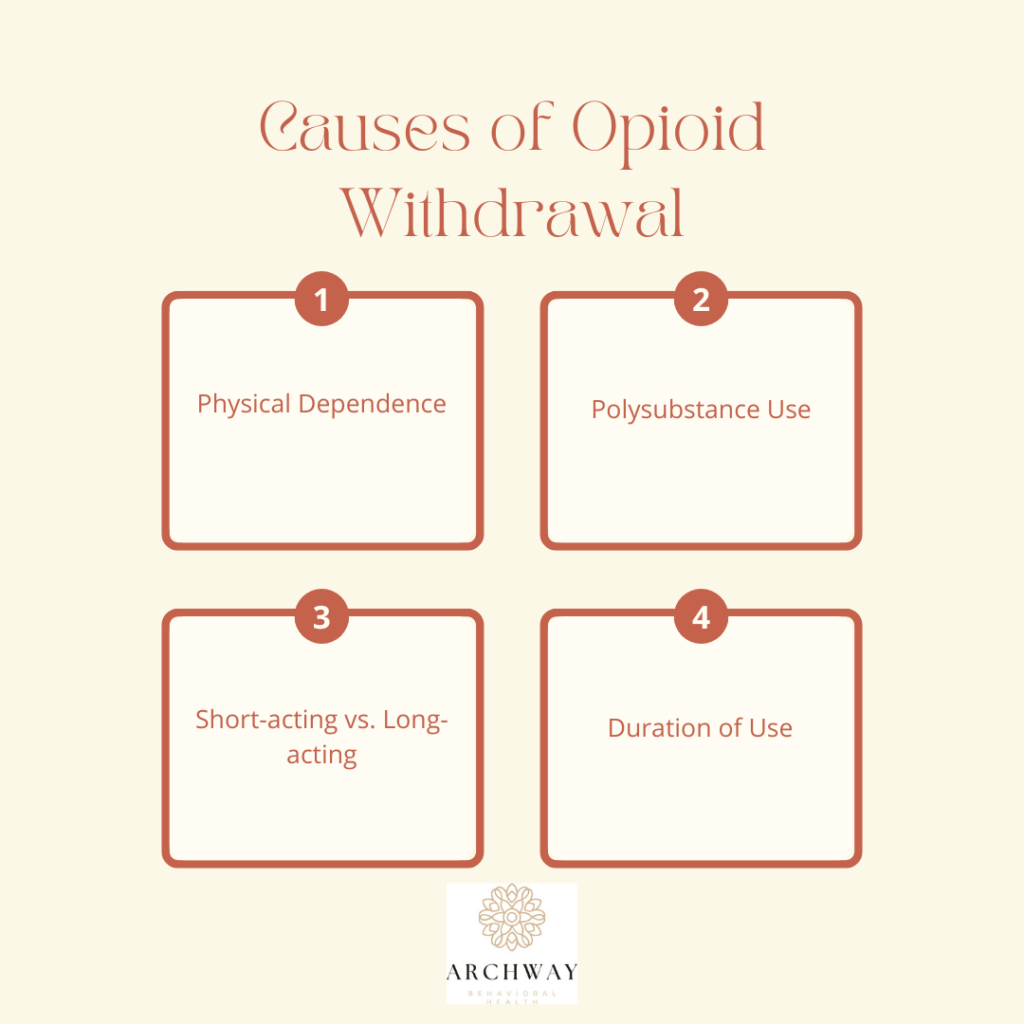Dependence withdrawals can be a daunting and challenging experience for those who are trying to overcome an mental health. Understanding the duration and symptoms of dependence withdrawal is crucial for individuals seeking recovery and for their loved ones supporting them. At Archway Behavioral Health, we provide comprehensive mental health treatment services to help those struggling with dependence mental health navigate the withdrawal process safely and effectively.
Understanding Dependence Withdrawal
Dependence, including prescription pain relievers like oxycodone, hydrocodone, and morphine, as well as illicit drugs like heroin, can lead to physical dependence. This means that when an individual stops using these substances, their body must readjust to functioning without them, resulting in withdrawal symptoms. These symptoms can vary widely in severity and duration, influenced by various factors.
Timeline of Dependence Withdrawal
Dependence withdrawal symptoms usually begin within 6 to 12 hours after the last dose of the drug. The severity and duration of symptoms can vary depending on factors such as the type of dependence used, the length of use, and the individual’s overall health.
1. Onset of Symptoms
- Initial Symptoms (6-12 hours after last use): Withdrawal symptoms typically begin within 6 to 12 hours after the last dose for short-acting dependence like heroin or immediate-release medications. For longer-acting dependence, such as methadone or extended-release formulations like OxyContin, symptoms may start later, around 24 to 48 hours after the last dose.
- Common Early Symptoms: Early symptoms can include anxiety, restlessness, insomnia, muscle aches, and cravings. These initial symptoms may be mild but can rapidly escalate in severity.
2. Peak Symptoms
- Peak Intensity (1-3 days): Symptoms usually peak in intensity within the first 1 to 3 days. This phase is often the most challenging, as individuals may experience a range of physical and psychological symptoms, including:
- Physical Symptoms: Severe muscle aches, nausea, vomiting, diarrhea, sweating, and chills.
- Psychological Symptoms: Heightened anxiety, irritability, and depression.
3. Duration of Symptoms
- Acute Withdrawal (up to 1 week): Most acute withdrawal symptoms begin to subside after about a week, although some individuals may still experience lingering symptoms. This phase typically involves a gradual reduction in the severity of physical symptoms but can still be accompanied by significant psychological distress.
- Common Symptoms During Acute Withdrawal:
- Muscle pain and discomfort
- Insomnia and sleep disturbances
- Fluctuating emotions and mood swings
4. Post-Acute Withdrawal Syndrome (PAWS)
-
- Extended Duration (weeks to months): After the acute phase, some individuals may experience PAWS, which can last for several weeks or even months. Symptoms during this period may include:
- Mood Instability: Ongoing anxiety, depression, and irritability.
- Sleep Issues: Persistent insomnia or disrupted sleep patterns.
- Cognitive Challenges: Difficulty concentrating, memory issues, and brain fog.
- Extended Duration (weeks to months): After the acute phase, some individuals may experience PAWS, which can last for several weeks or even months. Symptoms during this period may include:
Factors Influencing Withdrawal Duration
Several factors can influence how long dependence withdrawals last in the body:
- Type of dependence: The specific dependence used (short-acting vs. long-acting) plays a significant role in the timeline of withdrawal symptoms. For instance, heroin’s short half-life leads to quicker onset and peak symptoms compared to methadone.
- Duration of Use: Longer periods of dependence use generally result in more severe withdrawal symptoms and a longer duration of discomfort.
- Dosage: Higher doses may result in more intense withdrawal symptoms and longer durations.
- Individual Differences: Factors such as age, overall health, mental health history, and genetic predispositions can affect withdrawal experiences. Younger individuals or those with pre-existing mental health issues may face additional challenges during withdrawal.
Seeking Help at Archway Behavioral Health
Seeking help from a mental health treatment center can provide essential support and increase the likelihood of a successful recovery.
Navigating the challenges of dependence withdrawal can be daunting, but help is available. At Archway Behavioral Health, we offer a range of treatment options designed to support individuals through the recovery process:
- Mental Health Treatment Services: Specialized services at a mental treatment center offer a comprehensive approach to addressing mental health and withdrawal.
- Dialectical Behavior Therapy: Dialectical Behavior Therapy (DBT) is a form of cognitive-behavioral therapy that focuses on helping individuals manage emotions and cope with stress. DBT centers can be particularly beneficial for those dealing with intense emotional responses during withdrawal.
- Cognitive Behavioral Therapy: Cognitive Behavioral Therapy (CBT) helps individuals identify and change negative thought patterns.
- Therapy for Anxiety Disorders: Anxiety Treatment Program can help individuals address and manage anxiety symptoms that arise during this period.
- Depression Therapy: Withdrawal can often lead to feelings of depression. Engaging in depression therapy can provide support and strategies to cope with depressive symptoms and improve overall emotional well-being.
- Partial Hospitalization Program (PHP): Partial Hospitalization Program provide a structured environment for managing withdrawal and supporting recovery.
- Intensive Outpatient Program (IOP): An Intensive Outpatient Program is a less intensive option than PHP but still offers significant support. Individuals attend therapy sessions multiple times a week and work on developing skills to maintain sobriety.
Final Thoughts
Understanding the timeline of dependence withdrawal can help individuals anticipate the challenges ahead and seek appropriate support. Engaging with mental health treatment services, including specialized therapy programs, can significantly improve the chances of successful recovery. Whether through DBT, CBT, or more intensive treatment programs like PHP or IOP, seeking professional help is crucial for managing withdrawal symptoms and achieving long-term sobriety. If you’re ready to begin your journey to mental well-being, contact Archway Behavioral Health today, call us at (888) 488-4103.
FAQ: How Long Do Dependence Withdrawals Last In The Body?
How soon do withdrawal symptoms begin?
Withdrawal symptoms typically begin within 6 to 12 hours after the last dose for short-acting dependence (like heroin) and within 24 to 48 hours for long-acting dependence (like methadone).
How long do acute withdrawal symptoms last?
Acute withdrawal symptoms generally last about 5 to 7 days, with symptoms peaking in intensity around the 1 to 3-day mark.
What are common symptoms of dependence withdrawal?
Common symptoms include muscle aches, anxiety, insomnia, nausea, vomiting, diarrhea, sweating, and cravings. Psychological symptoms like depression and irritability may also occur.
What is Post-Acute Withdrawal Syndrome (PAWS)?
PAWS refers to a prolonged withdrawal phase that can last for weeks or even months after acute symptoms have subsided. Symptoms can include mood swings, anxiety, sleep disturbances, and cognitive difficulties.
How do individual factors affect withdrawal duration?
Factors such as the type of dependence used, the duration of use, dosage, and individual differences (like age and overall health) can influence the severity and duration of withdrawal symptoms.
Is it safe to detox from dependence on my own?
Detoxing from dependence can be dangerous and uncomfortable. It’s highly recommended to seek professional help from a mental health treatment center to ensure safety and receive appropriate support.
What treatment options are available for dependence withdrawal?
Treatment options include individual therapy, group therapy, cognitive behavioral therapy, dialectical behavior therapy, partial hospitalization programs (PHP), and intensive outpatient programs (IOP).



